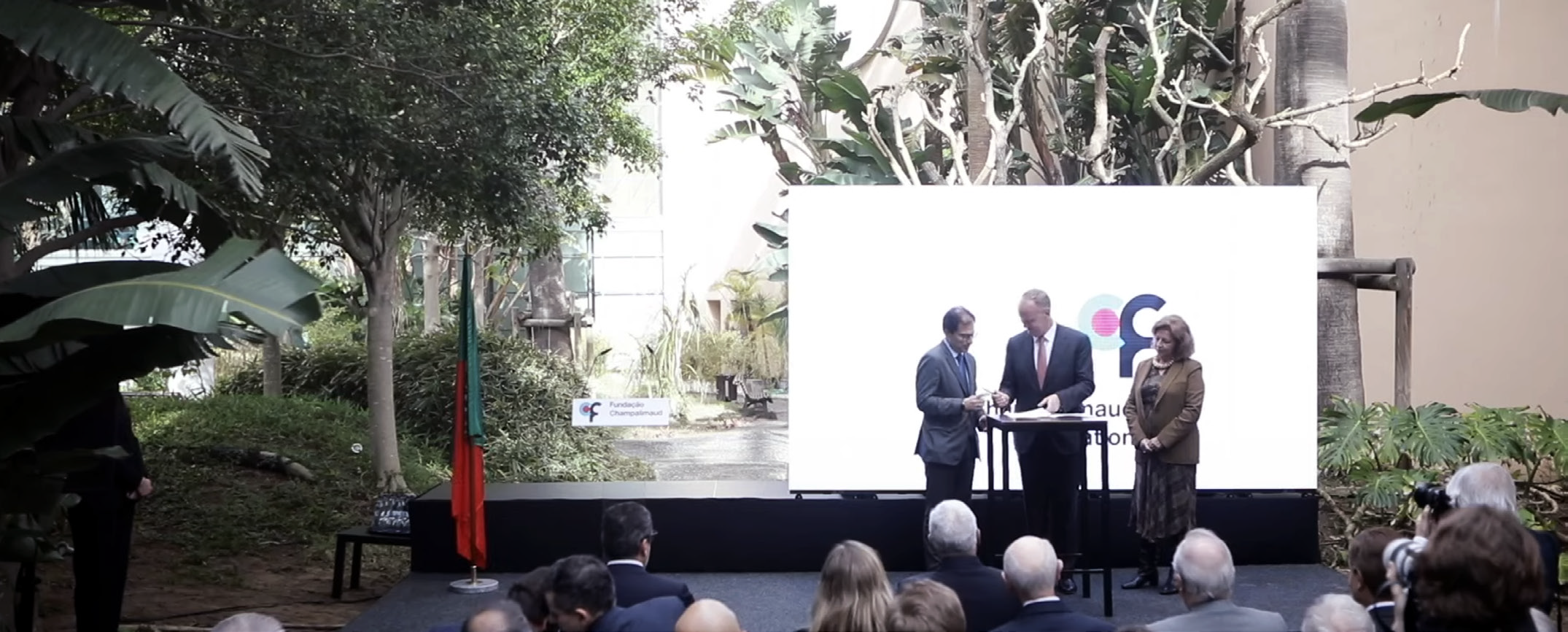HealthManagement, Volume 23 - Issue 4, 2023
Aims to reduce carbon emissions by 50% with sustainable Philips healthtech innovations
In a stride towards sustainability and innovation in healthcare, the Champalimaud Foundation in Lisbon, Portugal has forged a strategic partnership with Philips. This collaboration aims to reduce the carbon footprint resulting from Champalimaud’s diagnostic and interventional imaging equipment by a staggering 50% by the year 2028. The partnership showcases a shared commitment to global sustainability in healthcare. Additionally, these measures will enhance the quality and efficiency of care delivery at
Champalimaud Foundation. As a result, more patients are expected to benefit from the hospital’s cutting-edge diagnostic healthcare services.
Key points
- The Champalimaud Foundation partners with Philips, aiming to reduce carbon emissions from its medical equipment by 50% by 2028.
- The partnership extends beyond imaging technology, encompassing responsible consumption, climate action, and circular economy solutions.
- The collaboration aligns with the United Nations Sustainable Development Goals (SDGs) to combat climate change, promote sustainable consumption and improve health and wellbeing for all.

Image 1: Champalimaud Foundation and Philips Partnership ceremony, 09 March 2023 Philips
A Shared Vision for Sustainable Healthcare
The partnership between Champalimaud Foundation and Philips represents a shared commitment to combatting climate change and advancing the United Nations Sustainable Development Goals (SDGs). With global healthcare systems accounting for 4.4% of worldwide CO₂ emissions [1], more than the aviation or shipping industries [2], embracing sustainable practices in the healthcare sector is urgent. At the same time, the healthcare sector is experiencing the impacts of climate change firsthand, treating the people who are impacted.
A Holistic Approach to Sustainability
The transformation of Champalimaud Foundation’s imaging technology infrastructure will be realized through a series of practical, scalable measures and innovations. These include equipment upgrades, extending equipment lifespans, digitalization of processes, circular financing solutions, and transitioning to renewable electricity sources. Beyond reducing their carbon footprint, these measures will enhance the quality and efficiency of care delivery at Champalimaud Foundation. As a result, more patients are expected to benefit from the hospital’s cutting-edge diagnostic healthcare services.
Philips: A Leader in Sustainable Innovation
Philips is at the forefront of the sustainable healthcare revolution. Leveraging its expertise as a health technology company, Philips incorporates sustainability into its innovation process through EcoDesign, circular economy principles, renewable energy sourcing, and digitalization for workflow improvement. The company’s unwavering commitment to these principles has earned it a top spot-on LexisNexis’ ‘Top 100’ list of companies contributing to UN SDG3: Good Health and Well-being. Philips was one of the highest scorers among health technology companies for the UN SDG3.
A Commitment to Excellence
Philips will collaborate closely with the Champalimaud Foundation to update and renew its diagnostic imaging technology capabilities. This includes introducing Philips’ latest innovations in diagnostic imaging, such as state-of-the-art CT and MR systems. These innovations advance diagnostic capabilities, reduce resource demand, and increase the use of recycled materials, thereby contributing to a sustainable healthcare ecosystem.
“The healthcare sector is a significant contributor to CO₂ emissions and therefore has an important role to play in mitigating climate change,” said Leonor Beleza, President of the Champalimaud Foundation. “This partnership will allow us to continue to ensure the best care for our patients while at the same time helping to reduce the healthcare sector’s environmental impact.” Robert Metzke, Global Head of Sustainability, Philips, is very optimistic about the partnership with Champalimaud Foundation. “Sustainability is a fundamental component of Philips’ strategic vision. We are acutely aware of the environmental impact of the healthcare sector and its vulnerability to climate change. We are deeply passionate about collaborating with leading healthcare providers worldwide to help them diminish their carbon footprint. Sustainability is an integral part of our corporate strategy, and we recognize that achieving it requires the concerted efforts of partners like Champalimaud. Our goal is to enable patient care where and when it is needed while minimizing our impact on the planet.

Image 2: Aerial view of the indoor garden of the Champalimaud Centre for the Unknown. Philips
Beyond Imaging Technology
This partnership goes beyond imaging technology. By installing sustainable healthcare solutions, Philips will support the Champalimaud Foundation’s sustainability targets. This includes the Philips Spectral CT 7500, which uses 62.5% less energy [3]. Additionally, installing Philips MR – Ingenia Ambition 1.5T will also provide benefit as it requires significantly less helium than other systems. These innovations underscore Philips’ dedication to environmentally responsible healthcare.
Philips’ Broader Vision for Sustainability
Philips’ commitment to sustainability extends beyond SDG3 to include SDG12: Responsible Consumption and Production and SDG13: Climate Action. The company actively promotes circular economy solutions to minimize waste and reduce the extraction of finite natural resources. For example, Philips’ Circular Edition portfolio offers customers access to refurbished, upgraded, and quality-tested technology at a reduced cost. By 2025, Philips aims to generate 25% of its total revenue from circular propositions, with 100% of its products designed using its whole lifecycle EcoDesign principles.
As the healthcare sector grapples with its environmental impact, Philips is actively working to reduce its carbon emissions. The company has been carbon neutral in its operations since 2020 and leads sustainability programs throughout its value chain.
In addition, Philips is leveraging its expertise to assist health systems around the world in their efforts to decarbonize their operations. The partnership with the Champalimaud Foundation represents a key example of Philips’ collaboration with health systems to achieve a more sustainable and equitable healthcare future, driven by cutting-edge technology and an unwavering commitment to global well-being.
Learn more about partnering with Philips: Strategic Partnerships & Healthcare Solutions / Philips Healthcare
Watch video: Philips healthcare & Champalimaud Foundation: Partnering to Drive Sustainable Healthcare
About Champalimaud Foundation:
The Champalimaud Foundation was created in 2004 by the last will and testament of the Portuguese entrepreneur António Champalimaud. It is one of the largest European foundations dedicated to scientific research in the field of Medicine. The Champalimaud Foundation essentially supports research in neurosciences, cancer and vision.
The mission of the Champalimaud Clinical Center (CCC) is to actively develop advanced research and technological innovation programs, alongside the interdisciplinary delivery of clinical care in the prevention, early diagnosis and treatment of cancer. Its clinical activity is patient-centered, through the personalization of care and promotion of quality of life, providing excellence in care, based on multidisciplinary teams, and providing patients with the opportunity to participate in innovative diagnostic and treatment programs.
Disclosure of conflict of interest: Point-of-View articles are the sole opinion of the author(s) and they are part of the HealthManagement.org Corporate Engagement or Educational Community Programme.
References:
[1] Health Care Without Harm (2019). Health care’s climate footprint: How the health sector contributes to the global climate crisis and opportunities for action (p.22). https://noharm-global.org/documents/health-care-climatefootprint-report Scope 1 direct emissions originate from the hospitals’ own operations: emissions from the building and transportation. Scope 2 indirect emissions are generated by the production and distribution of energy that is consumed by the hospital. Scope 3 are indirect CO2 emissions caused by the production and transportation of goods and services needed by hospitals such as medicines, food, equipment, clothing and waste treatment.
[2] https://www.bmj.com/content/366/bmj.l5560
[3] When compared to an equivalent CT model of one of the industry leaders















